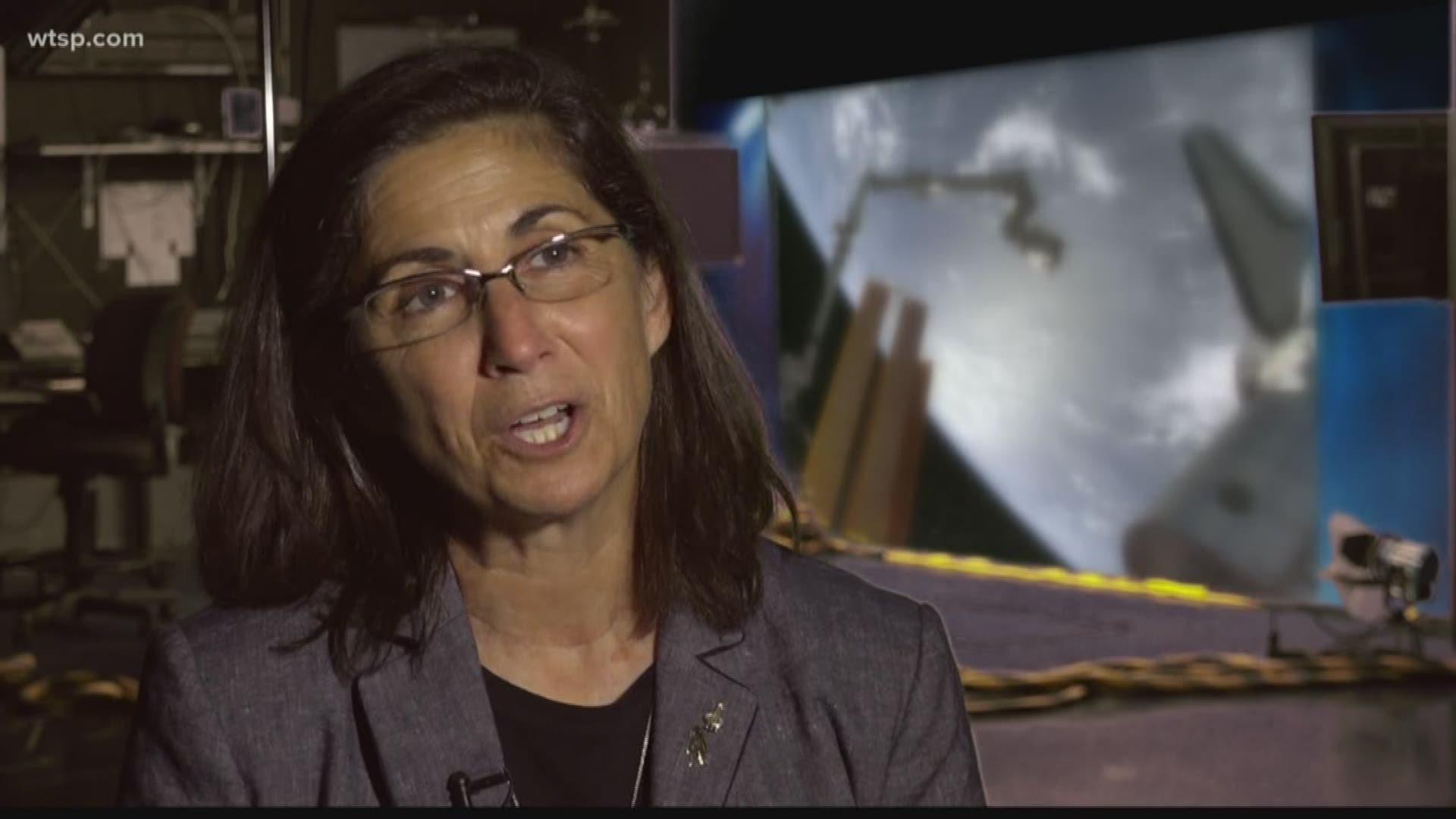ST. PETERSBURG, Fla. — Nicole Stott says she vividly remembers sitting in her family's Clearwater living room, with a grilled cheese in hand, watching a black-and-white TV screen as the first men landed on the moon.
She was just 6 years old and, truth be told, it wasn't the defining moment you might expect would've set her on a course to eventually become an astronaut.
"Maybe I’m just slow," Stott said with a chuckle. “I always thought, 'Oh wow, that’s something other special people get to do,' and it was a long time before I thought about it being anything that had any kind of potential.”
Looking back a half-century later on the historic Apollo 11 mission to the moon, Stott says it serves as "a reminder of what we’re capable of."
“It was really a very special thing to witness, even as a 6-year-old," Stott said.
She might not have known it at the time, but Stott eventually went on to have a successful 27-year career at NASA as an engineer and later an astronaut. She completed two missions to space and spent extended periods of time on the International Space Station.
“We worked as one crew together, representing 15 different countries," she said of her time on ISS. “I think it’s the model for how we’re going to continue in space, I don’t think any one country is going to do this anymore.”
Stott believes it's that kind of model that will help us get back to the moon and beyond.
NASA is setting its sights on a return trip to the moon by 2024.
The mission is called “Artemis,” and it promises to deliver the first woman to the moon.
Stott says this time around, it won't just be about getting to the moon but staying.
"We’re looking at it not from a go explore, come back and think about it for a long time," Stott said.
"We’re looking at it in a more sustainable fashion and as a solution to a lot of the challenges we have here on Earth—for things like space-based solar power, which through a platform on the moon we could generate all the electricity we need for Earth.”
With work underway on Orion, the first deep-space crew capsule since the Apollo era, Stott says it won't be a question of if we can return but whether—politically or otherwise—we find the will to return.
“I would love to see us get back to the moon, “for the benefit of life here on Earth," she said.
NASA officials say an additional $20 billion over five years is needed to meet the 2024 deadline, which some critics argue is unrealistic amid budget concerns and already-missed deadlines. Congress will have to approve the funding.
NASA's administrator will testify before the Senate on Wednesday.
CBS News contributed to this report.
- Video shows final moments of doomed flight from Addison's airport
- 2 people killed, dozens injured after carnival ride suddenly snaps in half
- Man kidnapped, killed woman found in truck in Dollar Tree parking lot: deputies
- 'New' type of skimmer found inside gas pump in Clearwater
- Florida 'Doomsday prepper' accused of abusing adopted twins
►Make it easy to keep up-to-date with more stories like this. Download the 10News app now.
Have a news tip? Email desk@wtsp.com, or visit our Facebook page or Twitter feed.

